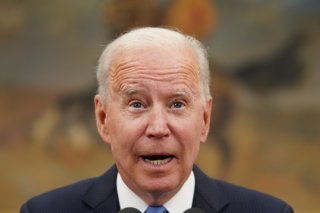California’s $100 Billion Recovery Plan Includes More Stimulus Checks
Governor Newsom claims the so-called “Golden State Stimulus” would be “the biggest state tax rebate in American history and the largest small business relief package in the nation.”
California Gov. Gavin Newsom signed on Monday a $100 billion plan to advance California’s recovery from the COVID-19 pandemic. The new law includes spending in a number of essential areas, including rent relief, business grants, and, most importantly to many residents, another round of statewide stimulus checks.
The plan is being financed by an unexpected surge in state revenue, leaving California with a multibillion-dollar budget surplus. Consequently, Newsom authorized a stimulus check to lower- and middle-class families in California, claiming that the so-called “Golden State Stimulus” would be “the biggest state tax rebate in American history and the largest small business relief package in the nation.” Two out of three California residents will receive these $600 checks, including – to some objections in certain corners of the state – felons and undocumented immigrants.
Newsom has emphasized the scale of the stimulus payment and its projected benefit to California’s economy. It is worth observing, however, that the governor was required by law to make the payment. A rule established by California political activist Paul Gann states that budget surpluses are required to be reimbursed to California taxpayers.
Newsom, whose popularity suffered during the pandemic, is facing an upcoming recall election, scheduled for September. Because of an oversight on his campaign’s paperwork, Newsom’s name will not be listed as a Democrat on the recall ballot, possibly hurting his chances. For this reason, the governor has a clear interest in implementing as much economic assistance as possible between now and September.
To this end, the plan also includes more than $5 billion in assistance for low-income renters and landlords; it covers 100 percent of their back rent and several months of future rent to successful applicants. Newsom also announced that $2 billion would be set aside for unpaid utility bills, and further funds would be allocated for eviction-related legal assistance.
Small businesses affected by the pandemic can request funds from a $1.5 billion grant program, and $120 million has been set aside for a campaign to attract out-of-state businesses to relocate to California.
Although the budget surplus alone cannot pay for Newsom’s plan, part of the expenses will be covered by pandemic assistance money the state received from the federal government. Policymakers in Sacramento have also speculated that parts of the plan would pay for themselves through projected future increases in state revenue.
Trevor Filseth is a current and foreign affairs writer for The National Interest.
Image: Reuters

